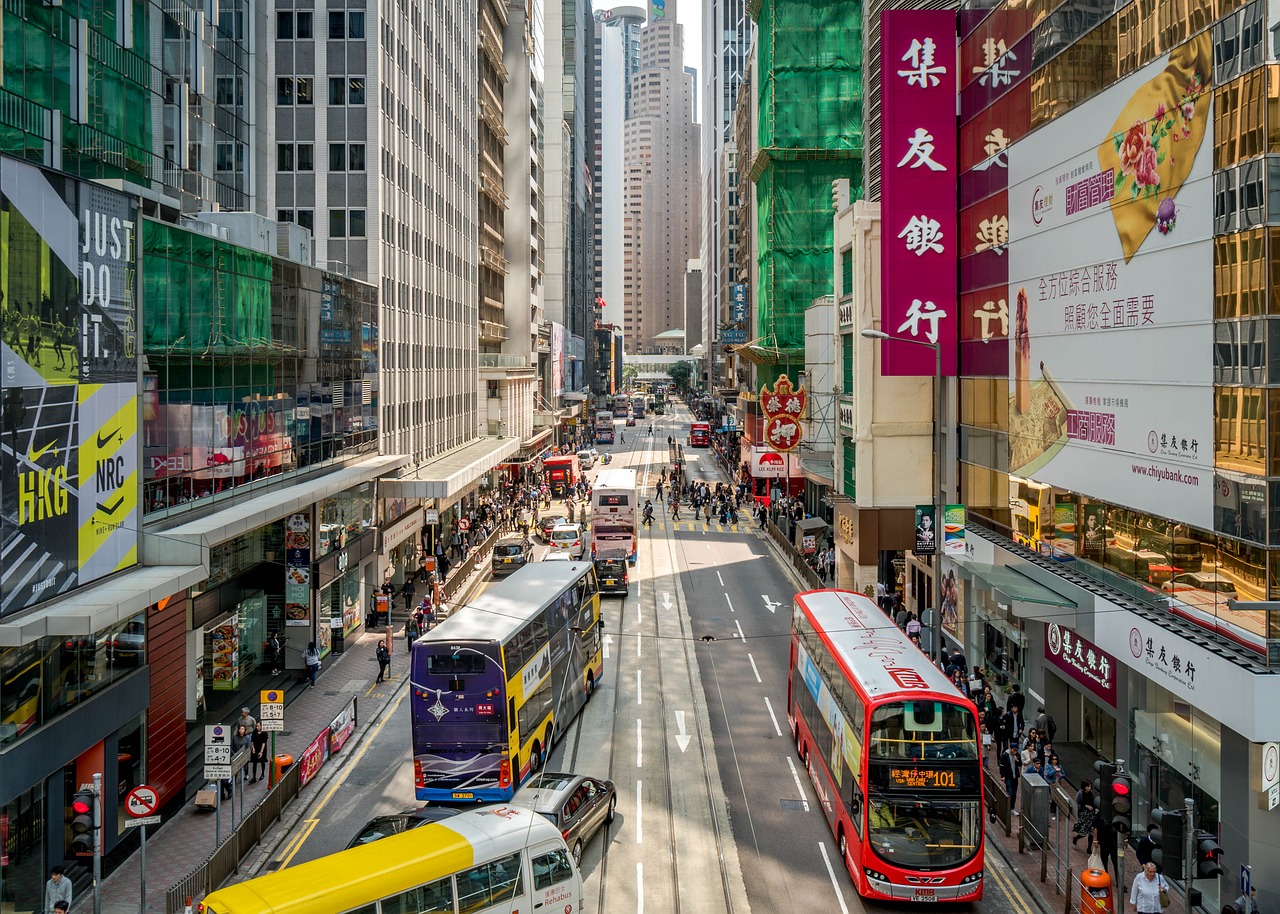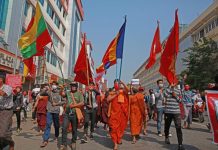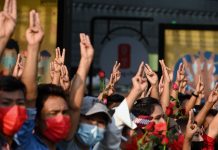
image sourceChina plans to implement new national security law in Hong Kong after a series of anti-government protests in the country.
This political move suggests Beijing will have more control over Hong Kong. However, more pro-democracy protests may ensue.
The draft legislation was introduced during the annual session of China’s National People’s Congress (NPC).
The legislation aims to boost Beijing’s control over Hong Kong, which was a former British colony that returned to Chinese governance in 1997. Hong Kong is reportedly acting under the “one country, two systems” principle. This provides Hong Kong a high degree of autonomy.
The NPC said it was “exercising the power (of) the constitution to establish and improve at the state level a legal framework and an enforcement mechanism for safeguarding national security in Hong Kong,” said Zhang Yesui, spokesperson for the third session of the 13th National People’s Congress, during a press conference on Thursday evening. “This is highly necessary.”
News agency Xinhua reported that China has been “firmly implementing the principles of ‘one country, two systems,’ ‘the people of Hong Kong governing Hong Kong,’ and a high degree of autonomy” since the return of Hong Kong to Beijing. The news media was disclosing an explanatory document from Wang Chen, vice chairman of the Standing Committee of the NPC.
“The practice of ‘one country, two systems’ has achieved unprecedented success in Hong Kong,” Xinhua stated regarding the document.
"One Country Two Systems"
However, “the increasingly notable national security risks” in Hong Kong developed into a “prominent problem” and “activities that have seriously challenged the bottom line of the ‘one country, two systems’ principle, harmed the rule of law, and threatened national sovereignty, security and development interests,” Xinhua noted.
However, the mainland government aims to rule the region due to the anti-government protests.
“Beijing has finally come to the end of its rope in watching the Hong Kong government not really be able to manage effectively the democracy activists,” said Elizabeth Economy, C.V. Starr senior fellow and director for Asia Studies at the Council on Foreign Relations.
“And I think it’s hard. They look and they see this Hong Kong with millions of residents demonstrating in the streets for democracy; what kind of message does that send to the 1.3 billion other Chinese on the mainland?” she said during an interview with CNBC on Friday.
“This is the end of ‘One Country Two Systems,’ make no mistake about it,” said Dennis Kwok, a democratic lawmaker in Hong Kong.
Legitimate rights, freedoms
“Beijing, the Central People’s Government, has completely breached its promise to the Hong Kong people, a promise that was enshrined in the Sino-British Joint Declaration and the Basic Law. They are now completely walking back on their obligations owed to the Hong Kong people,” he told reporters.
According to Hong Kong’s Chief Executive Carrie Lam's statement on Friday, “legislation on national security is undoubtedly within the purview” of Beijing.
Lam emphasized that the new national security law that China will implement in Hongkong will not change Hong Kong’s Basic Law. He added that it will not remove an article in it that establishes the constitutional responsibilities and legal obligations of Hong Kong that protect itself from any threat to national security.
The proposed legislation was to “safeguard national security and the prosperity and stability of Hong Kong, thereby better protecting the legitimate rights and freedoms of all members of the public in Hong Kong,” said Lam.






